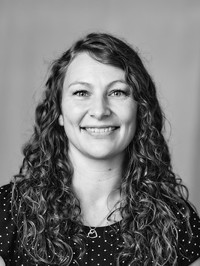ProVaHealth - Health Technology in Real Life Contexts
ProVaHealth stimulates cooperation among health laboratories in the Baltic Sea region that test new products and technologies in real life contexts.
- THE PROJECT IS FINISHED.
Developing in highly specialized Living Labs
With Living Labs, companies have the opportunity to test their inventions and technologies in a realistic setting that incorporates the future users as part of the development phase.
Living Labs are valued because they help bring technology and innovative solutions to market through a measured approach, which enforces a greater level of implementation into the healthcare sector.
The method utilized in modern Living Labs therefore offers a lot of benefits to small and medium-sized enterprises who want to fine-tune and scale their products to several markets.
Purpose
The purpose of ProVahealth is:
- To create a European network of Living Labs focused on healthcare innovation
- To design Living Lab services fitting for small and medium-sized enterprises
- To reduce the time in-between development and actual implementation of healthcare solutions.
Deliverances
ProVaHealth has three main work packages:
1. Improve the operation of Living Labs
- Identify issues regarding administrative procedures and services
- Present solutions designed for each individual Living Lab, in order to improve their operational, tactical and strategical procedures
- Work towards creating a “self-assessment-toolbox”, which will empower each individual
- Living Lab to solve any arising issues
- Work with legal advice on both national and European levels, in order to create a great strategic and legal foundation, to let the Living Labs thrive.
Work package 1 is managed by Tallinn University
2. Improve the operation of Living Labs
- Collect valuable experiences in regard to operation procedures and governance, that are to be used as a guide on how to successfully run a Living Lab
- Carry out various analyzing studies and activities, to get a complete overview of operations and services
- Establish a transnational network of healthcare oriented Living Labs by identifying, for instance, complimentary skillsets and knowledge sharing.
Work package 2 is managed by Tallinn Science Park Tehnopol.
3. Examine the need for having test-services be available to small and medium-sized enterprises
-
Complete tests in each of the 14 Living Labs involved
- Carry out structured interviews with at least 80 SME’s from the eight countries involved in the project
- Examine technical, legal and procedural issues
- Furthermore, 14 new partnerships will be established, made up of parings of Living Labs and SME’s across the eight involved countries. This will work both as a test and validation of the project, as well as activities within the project, while also improving 14 healthcare technologies or services along the way.
Work package 3 is managed by the Municipality of Lublin.
Health Innovation Centre of Southern Denmark’s role
Health Innovation Centre of Southern Denmark’s main role is to take care of the matchmaking between the 14 small and medium-sized enterprises and the Living Labs. Furthermore, we offer our expertise and experience in utilising the work packages described above.
Financing
The European Interreg Baltic Sea Region is financing the project with 2.353.387 EUR, as well as 669.457 EUR in self-financing.
The project is managed by Tallinn Science Park.
Partners
The project is managed by 17 partners. Of those 17, 14 partners contribute with field expertise and help with the continued development of the Living Labs. The 14 Living Labs are located in Estonia, Latvia, Lithuania, Sweden, Germany, Poland, Denmark and Finland.
Living Labs are specialised in various fields, such as healthy ageing, health tourism, home care, telemedicine, diagnostics, biomedicine , cardiology, oncology, acute and trauma medicine, physical and neurological rehabilitation, arthritis, health promotion and healthcare robotics.
Besides from having a very broad and specialised knowledge within the various fields, the project partners are also comprised of very different types of organisations. Represented among the partners are public services, universities, hospitals and business development initiatives. The project has, apart from those listed above, also an associated group of organisations that assist in spreading the results and effects of the project.
Contact

Caroline Strudwick
Specialkonsulent, Udviklingskoordinator
Brugercentreret Innovation
40 24 75 87 Caroline.Strudwick@rsyd.dk Caroline Strudwick på LinkedIn
